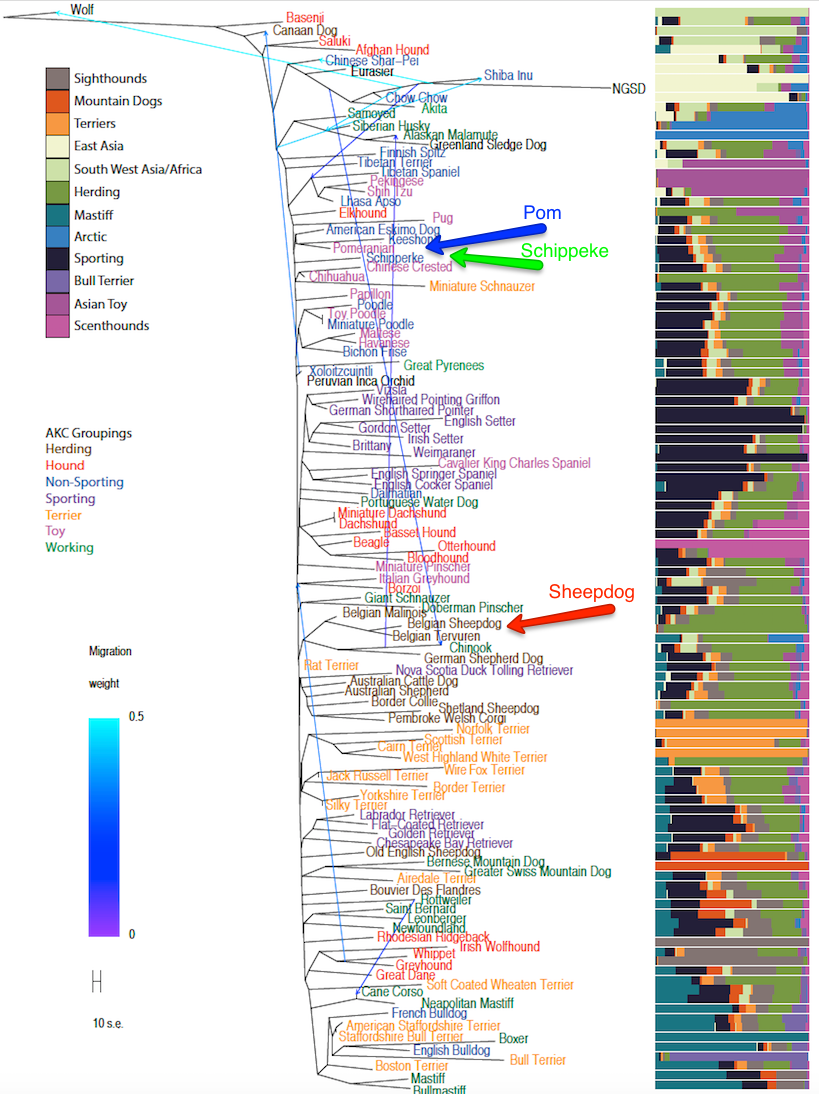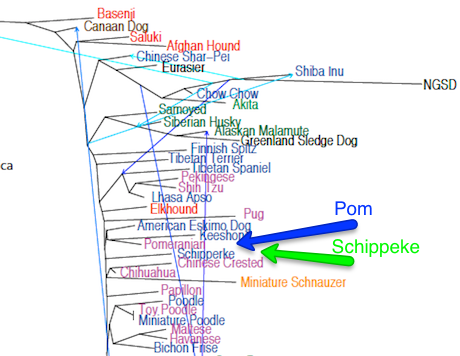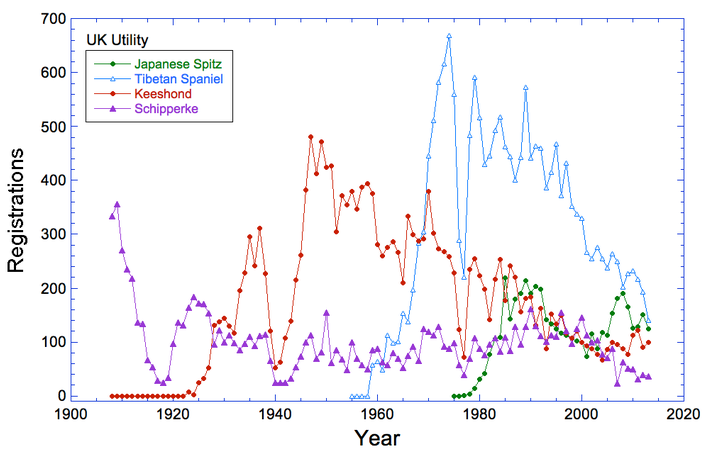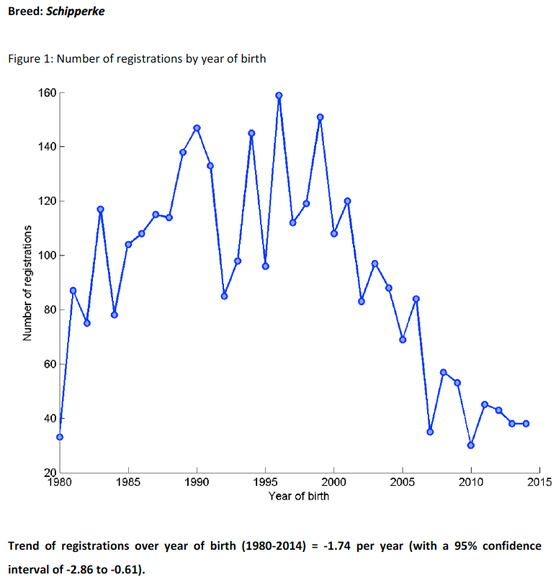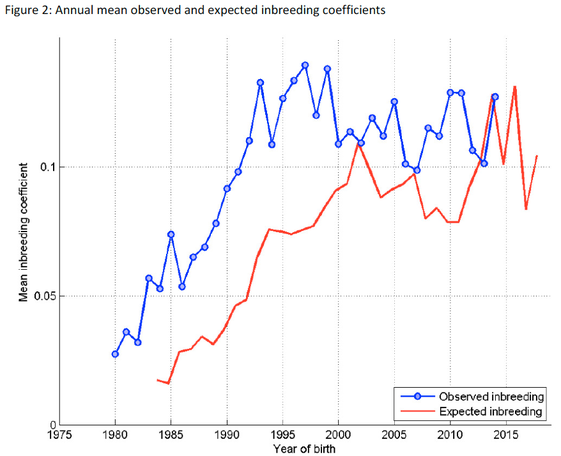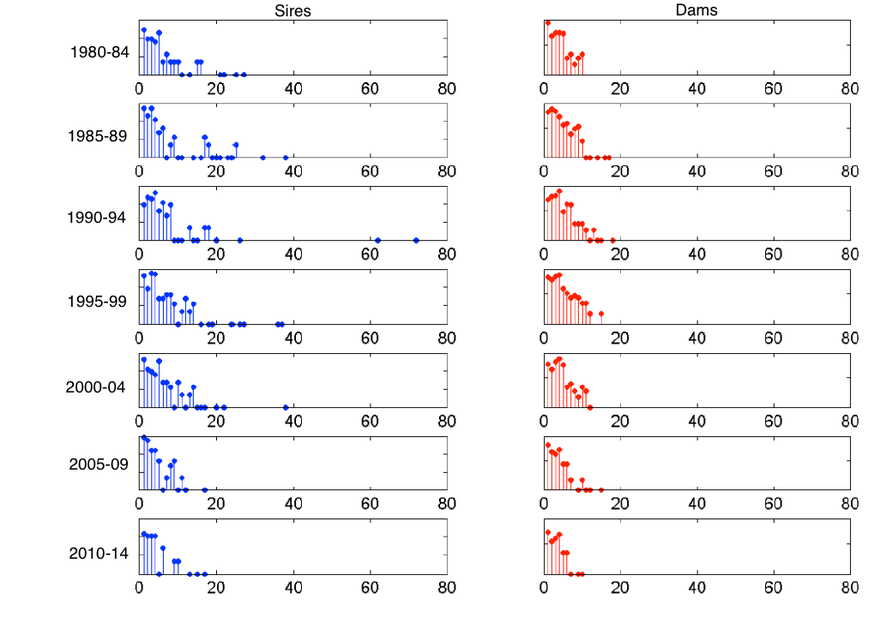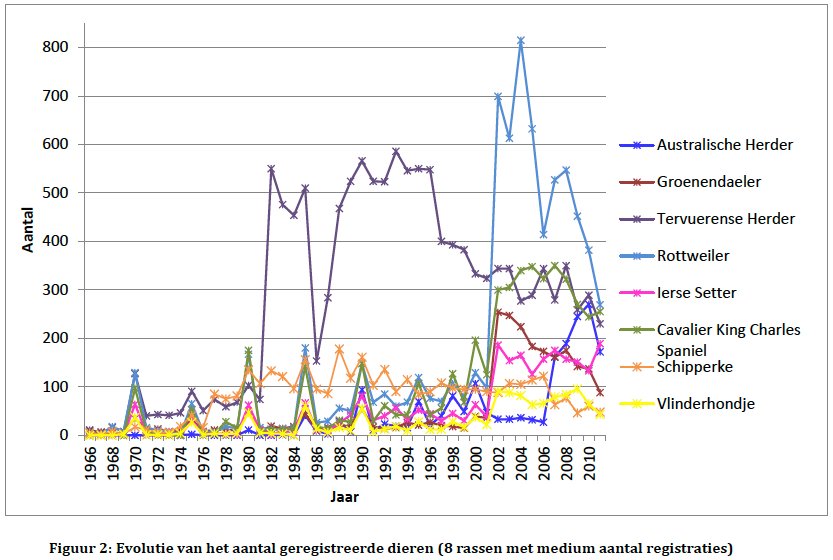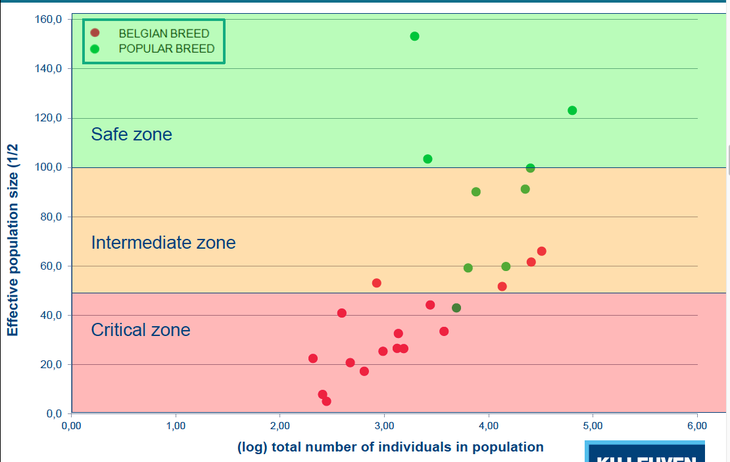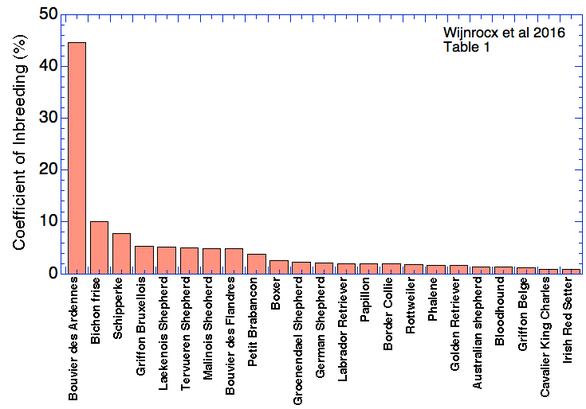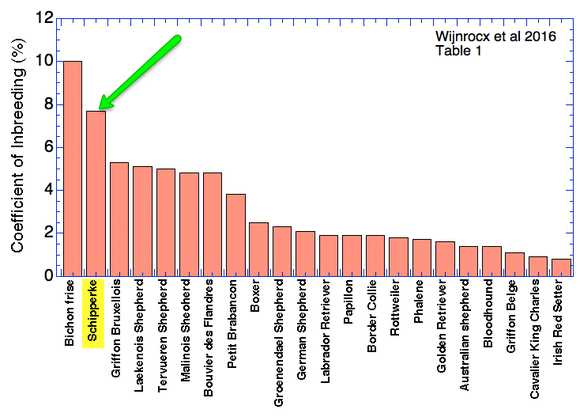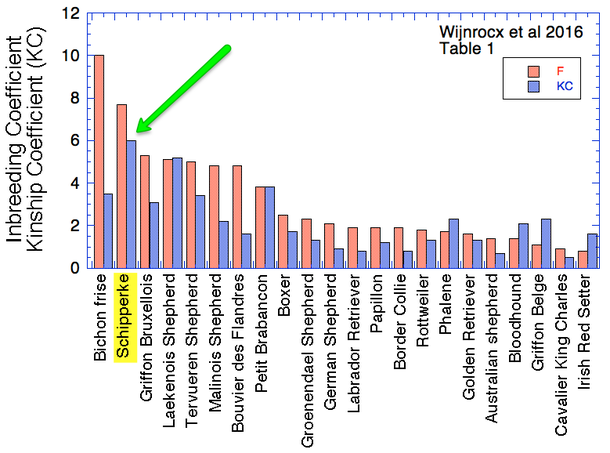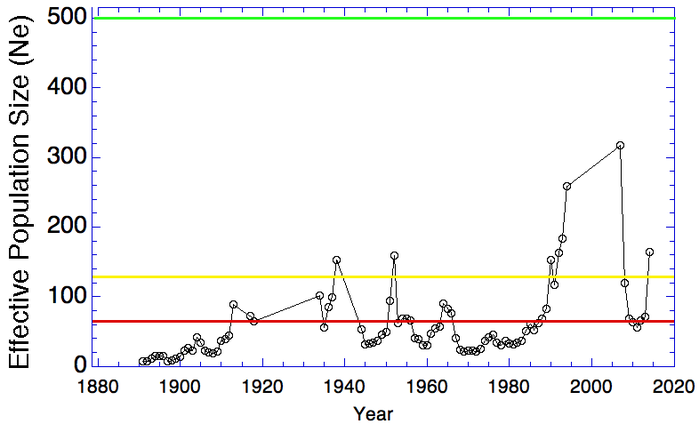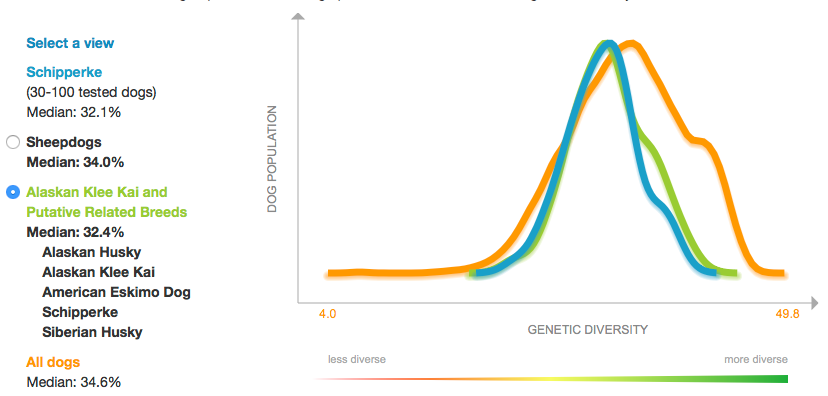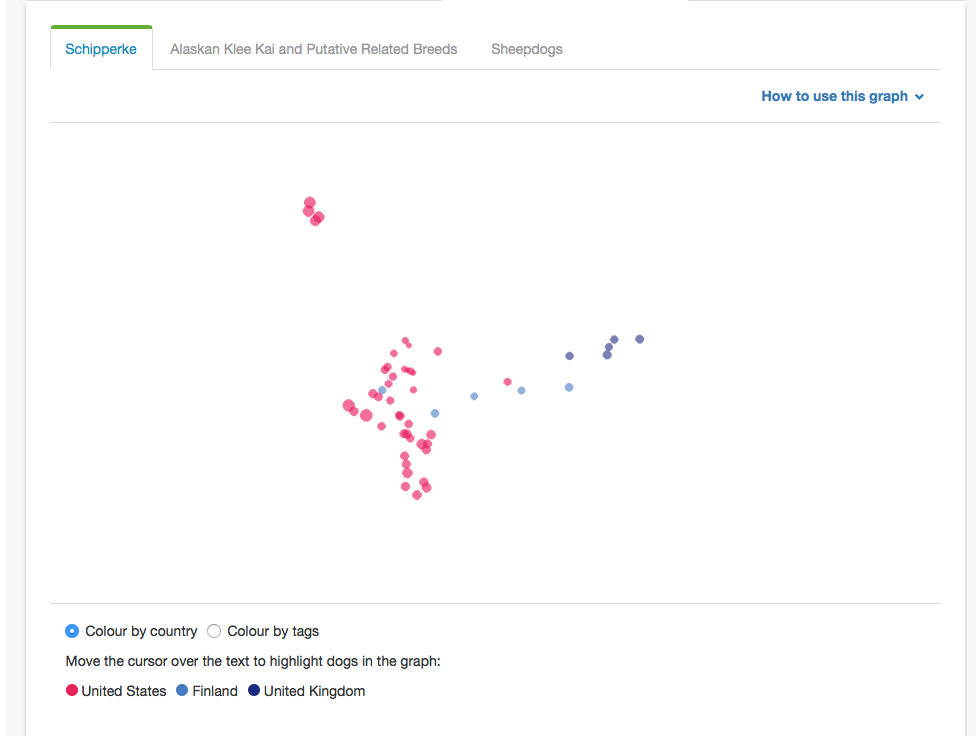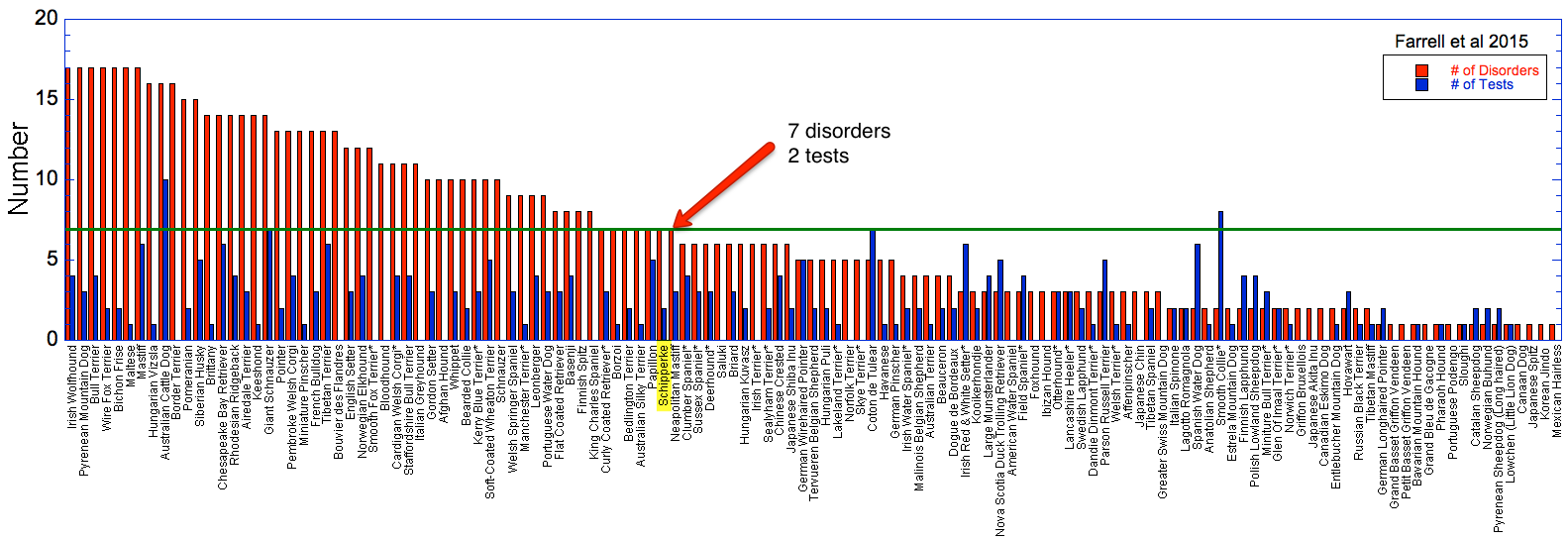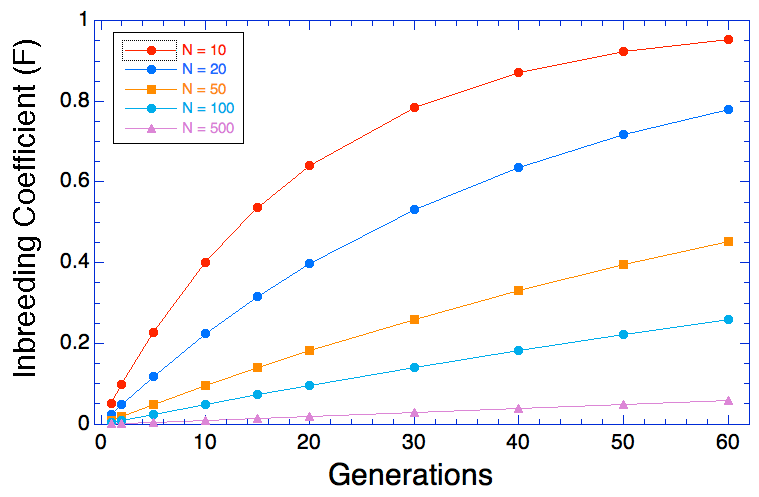Schipperke
Points I made from the data below:
The genetic data indicate that the Schipperke is more closely related to the Pomeranian than the Belgian Sheepdog and close to the spitz-type breeds.
The number of registrations in both the UK and Belgium are historically low and have recently been falling. The effective population size is in the "danger zone" of < 50, where risk of extinction is high.
The level of inbreeding has increased steadily over the generations. In the UK, what appears to be a flattening of the inbreeding since 2000 likely reflects the removal of import restrictions; imported animals usually have only a 3 generation pedigree and therefore (falsely) appear to be unrelated to the UK registered dogs.
There have been popular sires in the UK during the last few decades or so, but apparently none in the last 10 years.
The genetic data indicate that the Schipperke is more closely related to the Pomeranian than the Belgian Sheepdog and close to the spitz-type breeds.
The number of registrations in both the UK and Belgium are historically low and have recently been falling. The effective population size is in the "danger zone" of < 50, where risk of extinction is high.
The level of inbreeding has increased steadily over the generations. In the UK, what appears to be a flattening of the inbreeding since 2000 likely reflects the removal of import restrictions; imported animals usually have only a 3 generation pedigree and therefore (falsely) appear to be unrelated to the UK registered dogs.
There have been popular sires in the UK during the last few decades or so, but apparently none in the last 10 years.
Data from:
- Shannon et al 2015. Genetic structure in village dogs reveals a Central Asian domestication origin. PNAS (www.pnas.org/cgi/doi/10.1073/pnas.1516215112)
Data from:
- Registration records of UK Kennel Club
Data from:
- Lewis et al 2015. Trends in genetic diversity for all Kennel Club registered pedigree dog breeds. Canine Genetics and Epidemiology 2:13 (DOI 10.1186/s40575-015-0027-4)
Data from:
- Wijnrocx et al 2016. Half of 23 Belgian dog breeds has a compromised genetic diversity, as revealed by genealogical and molecular data analysis. J. Animal Breeding and Genetics 2016: 1-9.
Data from:
- MyDogDNA (www.mydogdna.com)
Data from:
- Farrell et al 2015. The challenges of pedigree dog health: approaches to combating inherited disease. Canine Genetics and Epidemiology 2:3 (DOI 10.1186/s40575-015-0014-9)
Effective population size (N) effect on rate of inbreeding
